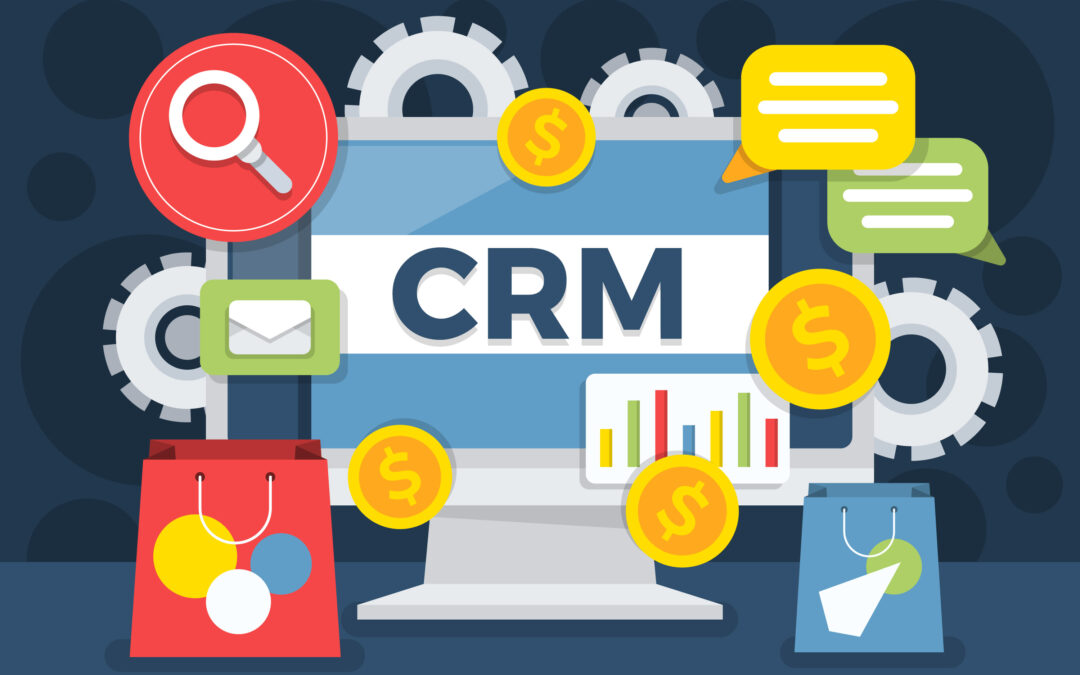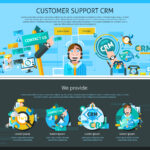Exploring the Value, ROI, and Long-Term Impact of CRM Systems in Sales with a Focus on AI Initiative Integration
In today’s hyper-competitive business environment, customer relationships are everything. And as businesses grow, managing these relationships manually becomes nearly impossible. Enter Sales CRM – an indispensable tool that has revolutionized how companies approach sales, customer engagement, and strategic planning.
In this comprehensive blog post, we’ll take a deep dive into how a Sales CRM benefits businesses, with a special spotlight on the AI initiative transforming the CRM landscape. Whether you’re a small business owner, a startup founder, or part of an enterprise-level sales team, understanding CRM’s full potential can give your organization the competitive edge it needs.
Table of Contents
What is a Sales CRM?
CRM stands for Customer Relationship Management, and a Sales CRM specifically refers to software designed to manage interactions with current and prospective customers throughout the sales lifecycle. This system helps businesses streamline their sales processes, automate follow-ups, and gain insights into customer behavior.
Most modern CRM platforms are cloud-based and integrate with other tools such as email platforms, marketing software, customer support channels, and more. Some popular CRMs include Salesforce, HubSpot, Zoho CRM, and Pipedrive.
Why Every Business Needs a CRM
If you’re wondering whether your business needs a CRM, consider this:
-
Are you tracking sales leads manually in spreadsheets?
-
Are follow-ups getting missed?
-
Is customer data scattered across multiple platforms?
-
Are your sales reps working in silos?
If you answered yes to any of these, then a CRM isn’t just helpful – it’s essential.
A CRM provides a centralized platform where sales, marketing, and support teams can collaborate, analyze data, and optimize customer touchpoints. Without it, you’re flying blind.
Top Benefits of Sales CRM Systems
Let’s look at the key benefits of implementing a Sales CRM into your business operations:
1. Increased Sales Productivity
CRM systems automate repetitive tasks, track leads, schedule follow-ups, and log interactions. This gives sales reps more time to focus on selling, not admin.
2. Better Customer Retention
With detailed customer history and automated reminders, CRMs help teams nurture relationships and improve retention by offering personalized service.
3. Smarter Forecasting
Sales CRMs provide real-time dashboards and analytics that help predict future sales based on current pipelines, historical data, and seasonal trends.
4. Streamlined Communication
A centralized database ensures that every team member has access to up-to-date customer data, reducing miscommunication and enhancing collaboration.
AI Initiative in CRM: A Game Changer
The AI initiative is rapidly transforming CRM systems from passive databases into intelligent, proactive assistants.
AI-powered CRM features include:
-
Lead Scoring: AI algorithms analyze engagement metrics and past behavior to assign scores, helping reps prioritize hot leads.
-
Sales Forecasting: AI can project future sales based on patterns and real-time trends.
-
Chatbots & Virtual Assistants: AI chatbots help qualify leads, answer FAQs, and escalate queries, even outside business hours.
-
Predictive Analytics: AI helps identify cross-sell and upsell opportunities by analyzing customer data and behavior.
According to Gartner, companies that embrace AI in CRM can see up to 30% higher conversion rates and 25% more accurate forecasts.
Improved Sales Pipeline Management
Managing a sales pipeline effectively means knowing which stage each deal is in, what actions are pending, and how close you are to closing.
A CRM system allows for:
-
Visual pipeline views
-
Drag-and-drop functionality
-
Deal stage customization
-
Automated reminders
This leads to faster decision-making and helps prevent leads from going cold.
Enhanced Lead Management and Conversion Rates
Without a CRM, leads often fall through the cracks.
CRM platforms improve lead management by:
-
Automatically capturing leads from forms, chats, emails, and social media
-
Assigning leads to the right sales rep based on geography, product, or workload
-
Sending automated welcome emails and follow-ups
Companies using CRM report a 29% increase in sales, according to Salesforce’s State of Sales Report.
360-Degree Customer View and Better Customer Service
A CRM provides a holistic view of every customer, including:
-
Communication history
-
Purchase records
-
Preferences
-
Service requests
This enables your team to provide consistent, personalized experiences that foster trust and loyalty.
With AI integration, CRMs can even predict customer needs before they arise.
Data-Driven Decision Making
Sales CRMs provide robust reporting tools that allow businesses to:
-
Analyze win/loss trends
-
Identify top-performing reps
-
Understand customer behaviors
-
Forecast future sales
The AI initiative supercharges this by surfacing actionable insights based on trends you might otherwise miss.
These data-driven decisions can boost revenue and minimize risk.
CRM and Team Collaboration
A centralized CRM fosters better team collaboration, ensuring that marketing, sales, and support departments are always aligned.
Features that enhance collaboration include:
-
Shared calendars and task lists
-
Internal notes on customer profiles
-
Integrated communication tools
-
Role-based permissions
This synergy ensures that the customer experience is seamless from the first touchpoint to post-sale support.
Choosing the Right CRM for Your Business
Choosing the right CRM depends on:
-
Business size and industry
-
Budget
-
Key features needed (e.g., email automation, lead scoring, integrations)
-
Scalability
Here’s a quick comparison:
| CRM Tool | Best For | Key Features |
|---|---|---|
| HubSpot | SMBs & startups | Free tier, marketing automation, easy UI |
| Salesforce | Enterprises & scaling orgs | Advanced customization, robust analytics |
| Zoho CRM | Budget-conscious teams | Workflow automation, omnichannel communication |
| Pipedrive | Sales-focused teams | Visual pipeline, performance tracking |
Look for platforms that support AI features if your company plans to leverage the AI initiative.
Challenges of CRM Implementation and How to Overcome Them
Implementing a CRM can come with its challenges:
-
User resistance
-
Data migration issues
-
Lack of training
Solutions:
-
Invest in employee onboarding and training
-
Choose a CRM with intuitive design
-
Start with small team pilots before full rollout
-
Ensure data cleanup before migration
With the right approach, these challenges are easily manageable and far outweighed by the benefits.
Conclusion: The Future is Intelligent CRM
The evolution of CRM systems from static databases to AI-enhanced platforms represents one of the biggest opportunities for sales teams today. The AI initiative is ushering in a new era of predictive insights, automation, and customer intelligence that can dramatically increase sales performance and efficiency.
Whether you’re running a small business or managing a global enterprise, a well-implemented Sales CRM will:
-
Boost team productivity
-
Improve customer satisfaction
-
Enable smarter decision-making
-
Drive higher ROI
Don’t wait to future-proof your business. Invest in a Sales CRM aligned with the AI initiative and watch your business thrive.














